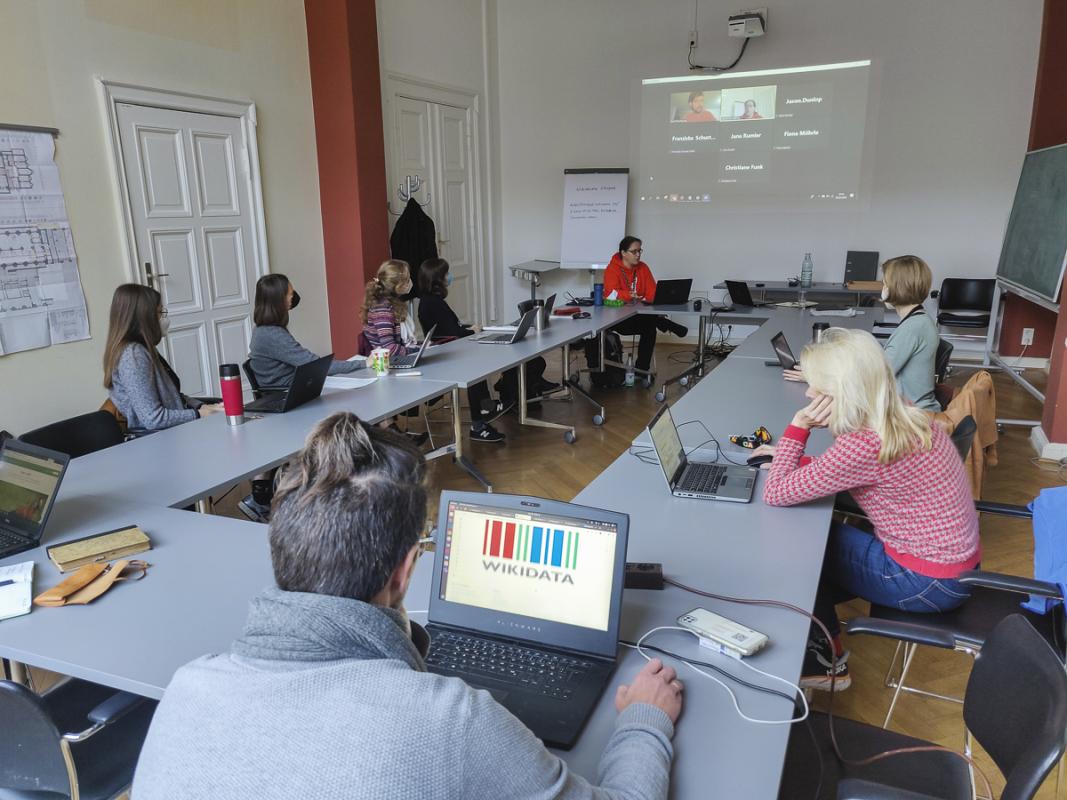On September 29 and 30, 2022, a first edit-a-thon was carried out in the Museum für Naturkunde as part of the collectors' project. The aim of the event was to create a common basis for editing in Wikidata, an open knowledge database that will be increasingly used in the future in the area of science data management and collection discovery and development at the museum. Among the nearly twenty participants were representatives e.g. from individual collections, the archive, the department Humanities of Nature, the Data Portal and the Collection Transformation Management.
Edit-a-thons are modern formats for participatory knowledge networking
A special focus was on checking the suitability of the format for future use at the museum. Similar to hackathons for programmers and transcribathons for readers of historical manuscripts, edit-a-thons are participatory workshops with the aim of editing content for various knowledge databases such as Wikipedia. Since this event was the first in a series of such workshops, the focus was laid on creating a common basis for future events.
After a brief introduction explaining the need for persistent identifiers for people, the first of the two days served to teach the basics of using Wikidata. The following day the event turned more into a “hands on” workshop aiming on creating and editing entries in Wikidata with appropriate assistance.
The highlight was the guest lecture on Bionomia
Canadian biodiversity informatician David Shorthouse, creator of the biodiversity platform Bionomia, emphasized the need to use stable identifiers (PIDs) for linking people to natural history specimens. For living people, the ORCID ID is a common choice, while the Wikidata ID is increasingly used for deceased people.
Controversy over the degree of possible disclosure of data on the collections
Now what should be made publicly available: rather the core data on individual collectors or also information on the associated holdings in the collections? The pros and cons of maintaining an in-house, closed database compared to the potential of involving external forces in viewing and correcting the knowledge database of the museum within the framework of the Linked Open Data (LOD) approach was controversially discussed by the participants. While the demand to use information from the MfN collectors’ wiki continues, interest was generated to test Wikidata as a new platform. Some kind of integration of Wikidata IDs into the different Collection management systems (CMS) was also requested. Until the second edit-a-thon, an open consultation hour should provide a forum for further discussion of questions, suggestions and concerns. Additionally, short mini edit-a-thons for collaborative editing were asked for and are in preparation.


